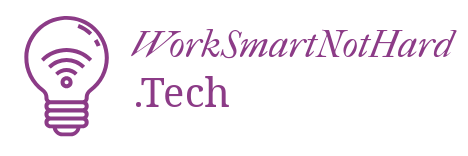In today’s fast-paced business world, taking care of your mental health is crucial, especially as a business owner juggling multiple responsibilities. This blog will guide you through five simple strategies to help you manage stress and boost productivity. Start by being present: focus on one task at a time using the ’20-minute rule’ to enhance concentration and reduce stress. Organize your workload by scheduling tasks into your calendar, breaking them into steps to avoid feeling overwhelmed. Setting micro-goals can make long-term objectives feel more attainable, building your confidence. Establish realistic boundaries by prioritizing your tasks and including buffer time for unexpected events. Finally, prioritize quality over quantity in all areas of life—ensure adequate sleep, maintain clear communication, unplug from technology regularly, and build a support network. Stay active to keep stress at bay, and don’t hesitate to seek professional help if needed. These strategies can make your entrepreneurial journey healthier and more fulfilling.
1. Practice Being Present

In today’s fast-paced business world, cultivating mindfulness can be a powerful tool for business owners. Start with mindful breathing; taking deep breaths helps anchor you in the present. Active listening is another vital practice. When conversing, focus entirely on the speaker without planning your response. This not only improves communication but also enhances your engagement with the present moment.
Single-tasking is a practical approach to increase productivity and reduce stress. By concentrating on one task at a time, you can improve the quality of your work and maintain mental clarity. Alongside this, regularly check in with your body to notice any tension or discomfort, which can be alleviated through conscious awareness.
Journaling is a reflective practice that can enhance your awareness of daily actions and thoughts. Writing down your experiences can help you stay connected to the present and understand your emotional responses better. To further focus your attention, limit multitasking and set boundaries for technology use. A digital detox can help reduce distractions and keep you grounded in the real world.
Incorporate short meditation sessions into your routine. This practice doesn’t require much time and can significantly improve your mental clarity and relaxation. Nature walks offer a change of scenery and a chance to engage with the natural world, promoting mindfulness and reducing stress. Finally, adopting a gratitude practice can help you appreciate the present moment by acknowledging the positives in your life, fostering a sense of contentment.
2. Schedule Your Tasks Effectively
Managing your time as a business owner is crucial for maintaining both productivity and mental health. Start by prioritizing your tasks using a priority matrix. This helps you identify which tasks are urgent and important, ensuring that your focus is directed where it’s most needed. Implement time blocking by setting aside specific time slots for each task, allowing you to concentrate fully without the distraction of multitasking.
Setting realistic deadlines can prevent procrastination and give structure to your workday. To streamline your workflow, consider batching similar tasks together. For instance, designate a specific time to handle all your emails or schedule all your meetings back-to-back. This reduces the mental load of switching between different types of work.
A planner is an invaluable tool in this process. Whether you prefer a digital app or a traditional notebook, maintaining a daily or weekly planner helps keep track of your tasks and deadlines. Regularly review and adjust your schedule to stay flexible and responsive to any changes.
Limiting interruptions is also key. Establish boundaries, such as setting specific “do not disturb” hours, to protect your focus. Begin your morning with a clear plan and your top priorities in mind, and conclude your day with an evening review to reflect on your achievements and plan for tomorrow. Leverage technology by using apps designed for task management, which can further enhance your efficiency and keep you organized.
| Sub-Topic | Description |
|---|---|
| Prioritize Tasks | Use a priority matrix to determine task importance. |
| Time Blocking | Allocate specific time slots for tasks to enhance focus. |
| Set Deadlines | Create realistic deadlines to avoid procrastination. |
| Batch Similar Tasks | Group similar tasks to improve efficiency. |
| Use a Planner | Maintain a daily or weekly planner for task management. |
| Review and Adjust | Regularly assess your schedule and adjust as needed. |
| Limit Interruptions | Set boundaries to minimize interruptions during work. |
| Morning Routine | Start your day with a clear plan and priorities. |
| Evening Review | Reflect on what was accomplished and plan for the next day. |
| Leverage Technology | Use apps and tools for effective task management. |
3. Set Achievable Micro-Goals

Breaking down larger goals into smaller, manageable tasks can greatly reduce stress and make projects less daunting. By setting SMART goals—specific, measurable, achievable, relevant, and time-bound—you ensure clarity and focus. Concentrating on daily targets helps build momentum and keeps you on track.
Celebrate small wins to maintain motivation. For instance, if your larger goal is to launch a new product, recognize the achievement of completing market research.
Track your progress using a journal or app. This helps in visualizing success and identifying areas for improvement. Stay flexible and open to adjusting your goals as necessary.
Keep your focus sharp by limiting the number of goals at any given time. This prevents overwhelm and enhances your productivity.
Having an accountability partner can also be beneficial. Sharing your goals with someone supportive can keep you motivated and on track. Finally, reflect on your outcomes regularly to learn and grow from the process.
- Break Down Larger Goals: Divide big goals into smaller, manageable tasks.
- SMART Goals: Ensure goals are Specific, Measurable, Achievable, Relevant, and Time-bound.
- Daily Targets: Set and focus on daily targets to build momentum.
- Celebrate Small Wins: Acknowledge achievements to boost motivation.
- Track Progress: Use a journal or app to monitor progress regularly.
- Stay Flexible: Be open to adjusting goals as needed.
- Limit Number of Goals: Focus on a few goals to avoid overwhelm.
- Visualize Success: Imagine achieving micro-goals to enhance motivation.
- Accountability Partner: Share goals with a friend to stay on track.
- Reflect on Outcomes: Regularly reflect on goal outcomes to learn and grow.
4. Establish Realistic Boundaries
Setting boundaries is crucial for maintaining your mental well-being as a business owner. Start by defining your personal limits; know what you can accept and what you need to avoid to keep your peace. Communicate these boundaries clearly, ensuring others understand your limits while remaining respectful. Learning to say no is vital; politely decline tasks or requests that infringe on your personal time or energy. Schedule downtime to recharge, and stick to set work hours to prevent burnout.
Digital boundaries, such as limiting email and social media use outside of work hours, help maintain focus and prevent stress. Create a dedicated physical space for work and personal activities to foster a healthy work-life balance. Protect your emotional well-being by distancing yourself from toxic influences and regularly checking in with yourself to reassess and adjust your boundaries as needed.
Respecting others’ boundaries is equally important, as it fosters mutual understanding and respect. By establishing and maintaining these boundaries, you create a sustainable environment that supports both your business and personal life.
5. Focus on Quality Over Quantity
Focusing on quality over quantity can significantly impact your mental health as a business owner. Prioritize tasks that have the greatest effect on your goals. Set aside time for deep work sessions where you can concentrate without interruptions. This helps in producing high-quality work and reduces stress. Limit distractions by setting up a workspace that encourages focus. Regularly reflect on the outcomes of your work to ensure it meets your standards. Continuously invest in improving your skills, which will enhance the quality of your work. Remember, it’s better to be thorough than fast; quality is more important than speed. Seek feedback to identify areas for improvement. Use quality tools and resources to boost your productivity. Finally, maintain a balanced workload to avoid burnout and ensure the quality of your work remains high.
Frequently Asked Questions
1. Why is mental health important for business owners?
Mental health is crucial for business owners because it affects decision-making, productivity, and relationships. Keeping a healthy mind helps you run your business better.
2. How can setting boundaries improve my mental health?
Setting boundaries helps balance work and personal life, preventing burnout and reducing stress. It ensures you have time to recharge.
3. What role does sleep play in managing mental health as a business owner?
Good sleep is vital as it improves mood, focus, and energy. It helps you handle stress and make better business decisions.
4. Why is it important to seek support from others as a business owner?
Seeking support can provide new perspectives, reduce feelings of isolation, and help you manage stress by sharing challenges.
5. How does having a routine benefit my mental well-being as a business owner?
A routine brings structure and predictability, reducing stress and helping you manage time better, making life easier to handle.
TL;DR To manage mental health as a business owner, practice being present with mindful breathing and active listening. Schedule tasks effectively by prioritizing and time blocking, allowing time for single-tasking and reviewing progress. Set achievable micro-goals using the SMART framework, and celebrate small wins. Establish realistic boundaries by defining personal limits, scheduling downtime, and learning to say no to excess demands. Focus on quality over quantity through deep work sessions, limiting distractions, and investing in skill development.

